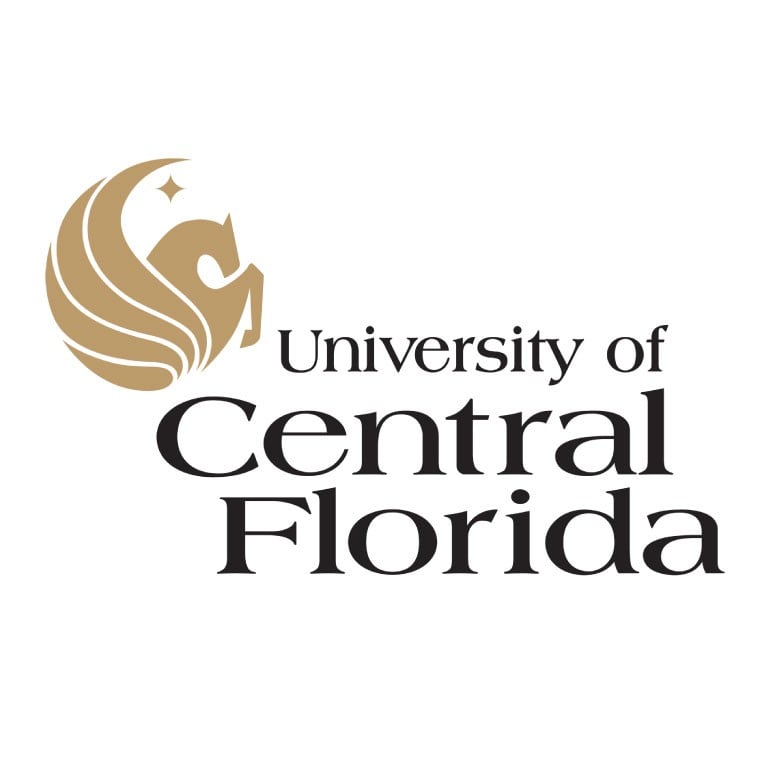Health informatics is about data and health science. Students of the subject learn how to manage and use patient data in a way that helps improve health care delivery processes and patient outcomes. This is a multidisciplinary field that draws from many areas, including:
- social science
- information science
- behavioral science
- management science
Health informatics students often gain skills relating to:
- computers
- clinical guidelines
- medical technologies
- communication systems
These allow students to gain in-depth expertise in the acquisition, storage, retrieval, and use of electronic medical records.
We do the research so you don’t have to!
That’s right, we get the hard work out of the way. We know that you have educational goals that you’re itching to pursue, but you may not know where to start. We’ve crafted a unique and proven ranking methodology that sets us apart. Our ranking score is based on the following three aspects:
40% Potential salary after graduation
30% Individual program accreditation
30% Overall affordability
Want to learn more about how we gather that information? Feel free to visit our dedicated methodology page for a step-by-step breakdown. We’re an open book!
If you’re interested in health informatics, check our list of the 20 Best Bachelors in Health Informatics!
Governors State University

Governors State University is a four-year university located near Chicago, Illinois. GSU offers students a comprehensive student life with over 70 student clubs and organizations. They are considered a national leader in graduating students from diverse backgrounds.
Governors State University features a bachelor’s degree in health informatics. The program consists of general education requirements as well as specialized coursework in health informatics. The curriculum is guided by the American Health Information Management Association curriculum.
Course offerings include:
- Analysis and Design of Health Information Systems
- Database Systems
- Data Mining and Business Intelligence
While GSU is a public university, the close knit community makes it feel like a private institution. Students benefits from a variety of supports including:
- financial
- mental health
- career help
Applicants to the program are required to have a GPA of at least 2.5 in their high school coursework. Students can enter with junior standing after completing 60 semester hours of pre-professional course work from an accredited institution.
Louisiana Tech University

Louisiana Tech University was known as the Industrial Institute and College of Louisiana when it opened in 1894. The school eventually transitioned into a polytechnic institute, before becoming a public university in 1970. Its main campus, in Ruston, LA, is home to more than 11,000 students, which includes just over 1,000 graduate students.
Louisiana Tech’s Department of Health Informatics and Information Management offers a bachelor’s in health informatics. Students take major courses and milestone exams to advance through the program, and each milestone exam is tied to a specific sequence of courses. This helps to ensure that students have the necessary skills to progress in the program.
Major core courses include:
- Health Records Professional Practice
- Coding/Class Diseases and Procedures
- Health Care Systems
The program also prepares students to earn and maintain a Registered Health Informatics Administration certification by requiring them to complete six hours of continuing education prior to graduation.
In addition to the bachelor’s degree program, LTU offers minor and graduate programs in health information. The minor program’s courses are determined by whether or not the student is a nursing student or a non-nursing student. The graduate program gives students the opportunity to earn a Master of Health Informatics degree.
University of Central Florida

The University of Central Florida is the largest university in the United States by total enrollment, with more than 70,000 students. The Orlando, FL-based school is located 35 miles west of Cape Canaveral, which is why UCF is also a “space-grant university.” This means that UCF helps to conduct outer space-related research.
UCF’s program is a Bachelor of Science degree in Health Informatics and Information Management. The curriculum is designed to deliver a unique balance between classroom theory and practical experience. The prerequisite and general education courses require students to complete 53 credit hours of coursework.
Major courses begin in the student’s junior year with classes such as Medical Terminology and Health Data Management. During the summer term of their senior year, students intern at an affiliated health care facility, which gives them hands-on experience in the health informatics field. Students who graduate from the program can qualify to become a Registered Health Information Administrator.
University of Illinois at Chicago

The University of Illinois at Chicago was the second campus established in the University of Illinois system. It is the largest university in the Chicago area, with more than 34,000 students, including 22,000 undergraduates. There are 16 colleges and schools within the university, and its athletic teams are known as the Flames.
UIC is home to a Bachelor of Science degree in Health Information Management. Students complete 63 credit hours of Health Information Management coursework, which includes classes such as Systems Analysis and Health Care Financial Management. The program ends with a clinical practicum in the healthcare industry designed to bridge the gap between the classroom and the workplace.
Students can earn transfer or equivalent credit for courses taken in accredited associate degree programs in Health Information Technology. Certifications such as the Registered Health Information Technician may also qualify for course credit. Students may also demonstrate proficiency in a subject through an exam. Taken together, these opportunities can earn health informatics students up to 24 hours of transfer credit.
East Carolina University

East Carolina University was founded in 1907 as a teachers’ training school. It earned university status in 1972 and quickly became a part of the North Carolina public university system. Non-health science majors are hosted on the main campus, in Greenville, NC, while health-related majors are hosted at a separate health sciences campus elsewhere in Greenville.
East Carolina’s Bachelor of Science in Health Information Management is offered both on campus and through the school’s online learning service. ECU offers the only CAHIIM accredited health informatics degree in the state. Graduates of the bachelor’s degree program are qualified to sit for the Registered Health Information Administrator credentialing exam. The program requires a total of 120 credit hours of coursework.
The health informatics degree plan includes the following courses:
- Leadership in Health Care
- Health Care Finance & Accounting
- Health Data Structures
Most of the courses in the bachelor’s degree program are predesignated, but there is an option for a Health Information Management elective in a student’s final semester.
One of the main components of the health informatics degree program is the required internship. ECU has a number of partner healthcare organizations that offer real-world experience to students; these are designed to pair them with highly motivated mentors and internship supervisors. The program even has an internship database for students who wish to explore previous students’ opportunities and experiences.
Clarkson College

Clarkson College is a private university located in Omaha, NE. The school’s programs are primarily related to health science fields. The school is affiliated with the Episcopal Church and the University of Nebraska Medical Center. Clarkson enrolls 1,180 students in its undergraduate, graduate, and post-graduate programs.
Clarkson offers a bachelor’s degree in Health Information Administration. Courses in the program are offered fully online, and students can take classes either full- or part-time. The program is designed to prepare students to sit for the Registered Health Information Administrator exam.
The health informatics degree online also integrates early testing into its curriculum, which allows students to earn the RHIA certification before they have graduated. The program requires the equivalent of 10 semesters of full-time coursework. Up to 70 transfer credit hours may be accepted. Start dates for the program are available in January, May, and August.
Oregon Institute of Technology

The Oregon Institute of Technology is a polytechnic university with a number of campuses throughout the state of Oregon. The school’s residential campus is located in Klamath Falls, and its urban campus is located in Wilsonville, but there are also regional campuses in Salem, OR and Seattle.
The Oregon Institute of Technology has an online degree in healthcare informatics that prepares students to be both information and computing specialists in the health care field. The program coursework gives students a strong background in areas like:
- business management
- information systems
- computing science
- health care
The program offers online classes and flexible schedule options to meet the needs of working students. Courses offered include:
- Database Design
- Computer Networks
- System Analytics
- Computer Programming
Students also get skills in digital security, data analytics, and medical terminology.
Hands-on learning experiences are included in many courses, to give students practical skills that will be relevant and valuable when they hit the post-graduation job market. Student-to-teacher ratios are kept low, to ensure that students get the focused attention they need to succeed. Faculty members are also directly involved in student counseling and advising.
Texas State University

Texas State University was founded as the Southwest Texas State Normal School in 1899 and served to educate future teachers until 1959, when the school became a full university. In 1965, President Lyndon Johnson, an alumnus of the school, returned to San Marcos, TX to sign the Higher Education Act of 1965, which was part of his Great Society plan.
Texas State University offers a Bachelor of Science degree in Health Information Management. The program includes options for students who: are seeking a second bachelor’s degree or have already earned an associate’s degree in health information technology. There’s also an option for those who are simply looking to earn their first undergraduate degree.
Program coursework is delivered in a “two-two” format, which splits requirements between two years of prerequisites and two years of major courses. Students complete major courses including:
- Legal Aspects of Health Information Management
- Coding and Classification Systems
- Disease and Medical Science
The program ends with students taking a Professional Practice Experience course, along with a Health Information Management Practicum.
Ferris State University

Ferris State University was first known as the Big Rapids Industrial School, as the school is located in Big Rapids, MI. It is the only public university in the state of Michigan to have been founded by an individual: Woodbridge Nathan Ferris. Ferris went on to serve as governor of the state, before moving on to the U.S. Senate.
Ferris State University offers a Health Information Management bachelor’s degree program that includes online learning options that allow students to complete their major courses online. The online health informatics degree is available to students who have already completed a relevant associate degree and to those who are already certified as Registered Health Information Technicians.
The university is located near the Medical Mile, a health care corridor in Big Rapids consisting of a number of institutions and offices related to the health care field. Students may also take courses off-campus at FSU’s community college partners throughout the state of Michigan. Applicants to the on-campus program are expected to have transfer credit covering prerequisite coursework.
University of Kansas

The University of Kansas is a public university located in Lawrence, KS. Kansas is home to a number of celebrated athletic teams, including a men’s basketball program that has won five national championships. Kansas athletic teams compete as the Jayhawks, a name originating with abolitionist groups that operated in Kansas during the 1850s.
KU offers a two-year bachelor’s degree program based at its Medical Center Campus. Students complete their first two years of undergraduate prerequisites on the main KU campus, or at a similarly accredited institution, before they begin the Health Information Management program. In addition to the bachelor’s degree program, KU allows students to earn a master’s degree or undergraduate minor in the field.
The program’s curriculum includes courses such as:
- Health Care Delivery Systems
- Pharmacology Concepts for Health Information Management
- Pathophysiology for Health Professionals
Students end the program by completing a management internship during their final semester, along with classes such as Leadership in Health Care and Information Governance in Health Care.
Some students choose to pursue a minor in business, in part because the programs’ curricula have some overlap. The Health Information Management program is designed to help students pass the Registered Health Information Administrator exam. The current pass rate for KU students is 93%.
Loma Linda University

Loma Linda University is a health sciences university owned and operated by the Seventh-day Adventist Church. The California-based university is home to a branch office of the Ellen G. White Estate, which operates as the custodian of the writings of Ellen G. White, which Seventh-day Adventists believe to be divinely inspired.
Loma Linda has a Bachelor of Science in Health Information Administration program. Admission to the program requires students to have completed 96 quarter units at an accredited college or university, including prerequisite coursework in:
- religion
- the humanities
- scientific inquiry
- communications
- health
- wellness
Courses in the health informatics major include:
- Clinical Classification Systems
- Introduction to Data Analytics
- Pharmacology for Health Information Administration
Students may also take a Coding Seminar or a course in Quality Improvement in Health Care. Loma Linda also offers a Bachelor Certificate in Health Information Management and a Master of Science in Health Informatics.
Temple University

Temple University is located in Philadelphia. The school was founded in 1884 by Baptist minister Russell Conwell, who had been working to tutor working-class individuals after the end of their workdays. This is why the school’s mascot, an owl, is affectionately referred to as a Night Owl.
Temple is home to a Bachelor of Science program in Health Information Management. The program is billed as having small class sizes and a tight-knit community of students who make the program unique. The program also has its own student association, which seeks to build connections between students and cohorts.
This is a two-year program that students complete during their junior and senior years of undergraduate study. Students apply to the BS in HIM during their sophomore year. After being accepted, they complete 61 credit hours of professional Health Information Management courses, which includes a professional internship.
Freshmen interested in this degree are strongly encouraged to enter the pre-HIM program, to prepare for applying, and to maximize their chances of admission, to the major program. The pre-HIM program gives students access to specialized advising related to the HIM field and ensures that they can take specific courses that teach them the fundamentals they will need to succeed in the major.
Temple provides students with multiple opportunities for financial support including scholarships and grants. Students are also encouraged to apply for federal financial aid.
Western Kentucky University

Western Kentucky University has roughly 16,000 students and an endowment of just over $125 million. The main campus is located in Bowling Green, KY, but additional campuses have opened in Glasgow, Elizabethtown-Fort Knox, and Owensboro, following recent expansion efforts. Pearce-Ford Tower, a residence hall on the school’s campus, is the second-largest dorm in the United States.
Western Kentucky University offers a 100% online bachelor’s degree in Health Information Management. The program’s curriculum is designed to focus on the management of information and people, as well as budget preparation and the administration of computerized health information systems.
Students can choose between a regular bachelor’s program or a degree-completion program, which is designed for those students who have already completed a related associate degree. To qualify for the degree-completion program, the student’s associate degree must be accredited by the Commission on Accreditation for Health Informatics and Information Management Education.
The major curriculum includes core courses such as Health Data Management and the capstone Professional Practical Experience. Students select from elective course options such as:
- Business Analytics
- Systems Development
- Data Mining
Students may test out of up to 21 credit hours of certain core program courses.
University of Louisiana

The University of Louisiana at Lafayette is the largest university, by enrollment, in the University of Louisiana state university system. The Carnegie Foundation categorizes Lafayette as an R2 Research Institution, meaning that it has “Higher Research Activity.” The school’s total student population is a little over 16,000.
ULL’s Bachelor of Science in Health Information Management is designed to give students a mixture of coursework and professional practice experience. Students can also earn a minor in Health Informatics as a part of the program. Coursework covers a cross-section of content areas, including:
- business
- management
- technology functions
Courses in the health informatics major include:
- Management and Leadership I & II
- Health Care Statistics and Research Models
- Health Care Reimbursement
- Procedural Coding in Health Care
Students who pursue the minor in Health Informatics also take courses such as Health Data Management Tools and Health Information Technology.
Saint Joseph’s College of Maine

Saint Joseph’s College of Maine is a private liberal arts college located in Standish, ME. It is the only Catholic college in the state of Maine, having been founded by the Sisters of Mercy in 1912. The school was originally a college for women, but it became coeducational in 1970 and started offering distance education programs six years later.
St. Joseph’s College of Maine is home to a bachelor’s degree that is available completely online. The program is designed for students from a wide variety of academic and professional backgrounds, including students who are just starting their first bachelor’s program and those who have already completed some college-level coursework.
The 128 credits required for the degree are split among 36 credit hours of general education courses, 51 credit hours of HIM core, and 38 credit hours of elective courses, along with a 3-credit advanced practicum course. Students can also use some of the program’s credits to fast-track their way to earning a Master’s in Public Health from St. Joseph’s.
Through courses specific to healthcare informatics, students will learn how to:
- manage health information and medical records
- administer computer information systems
- analyze data
Program faculty members have professional experience in the field of health information management, which allows them to give students real-world insight and applications for their coursework. Students are also encouraged to incorporate work experience into their studies, and coursework is accessible at all times, for maximum flexibility.
University of Detroit Mercy

The University of Detroit Mercy is a private Catholic university located in Detroit. The school is affiliated with the Religious Sisters of Mercy and the Society of Jesus and is one of the 28 member schools of the Association of Jesuit Colleges and Universities. It is the largest Catholic university in Michigan.
Detroit Mercy has a Health Information Management and Technology minor program that focuses on student skill-building to match the future needs of the health care industry. Health informatics professionals who have graduated from the program have gone on to pursue positions including:
- Compliance Officer
- Privacy and Security Officers
- Medical Coding Specialist
- Healthcare Data Quality Specialist
The core curriculum of the HIMT minor covers courses such as:
- Clinical Documentation and Management of Health Information
- Quality and Security of Health Information
- Healthcare Revenue Cycle
This minor is a great choice for computer science-based majors who want to expand their skills to include the healthcare sector. It’s also a great compliment to a nursing or health services administration degree.
Liberty University

Liberty University is one of the largest Christian universities in the United States, with more than 15,000 on-campus students and 94,000 online students. The school’s main campus is in Lynchburg, VA. All undergraduates are required to take three Biblical studies classes.
The Bachelor of Science in Healthcare Informatics program at Liberty requires 120 credit hours of coursework, which takes an average of 3.5 years to complete. Courses are delivered 100% online in 8-week intervals, and students can transfer in up to 75% of the total credits required for the degree.
Students take courses such as:
- Foundations of Pharmacology
- Health Care Informatics
- Health Care Coding and Classification
- Health Care Enterprise Systems
Applicants to the program are required to have a cumulative GPA of 2.0 or above. The degree is offered through Liberty University’s School of Business.
Liberty offers tuition benefits to active-duty military members, as well as veterans who have retired or been discharged from service, and spouses of service members of veterans. Students who have served in civilian first responder capacities, such as police officers or firefighters, may also apply for these tuition benefits.
Grand Valley State University

Grand Valley State University is located in Allendale, MI, which is roughly 12 miles outside of Grand Rapids. The school was founded in 1960 and grew from a state college to become a full university in 1987. In addition to its main campus, the school has an international campus in the Netherlands, and classes are offered in Traverse City, MI through local community colleges.
Grand Valley State offers a bachelor’s degree program in Health Information Management. The GVS program is a secondary admission program, which means that students must have completed 45 semester hours of coursework (including current enrollment) to be admitted to the program. Students must also have a minimum GPA of 2.5 in this coursework.
Students in the program complete not only the Health Information Management major, but also a minor in health care information systems. Students can expect to receive individualized attention, as all class sizes are limited to no more than 30 students. The software used in the curriculum is paid for by the Allied Health Sciences department.
Coursework covers topic areas such as:
- quality in health care
- health care law
- leadership practices in HIM
- strategic planning
There is also a field practicum course that gives students real-world experience in as healthcare informatics professionals. All upper-division courses in the program are completed on the GVSU Health Campus, which is near the Grand Rapids Medical Mile.
Saint Louis University

Saint Louis State University is a private Catholic university and the second-oldest Jesuit university in the United States. The school has also operated a campus in Madrid, Spain for nearly 50 years. The school has more than 13,000 students at its main campus in St. Louis, along with just over 800 students at the Madrid campus.
Saint Louis State offers a Bachelor of Science program in Health Sciences with a track in Health Information Management that includes 120 credit hours of coursework.
Core coursework in the major includes:
- Clinical Data Analytics
- Health Care Financial Management
- Professional Practice
- Health Data Management
On top of the core course requirements, students complete 15 credit hours of free electives.
University of Wisconsin

The University of Wisconsin, Madison was founded in 1848 as Wisconsin achieved statehood. It is the oldest and largest public university in the state and has four National Historic Landmarks on its campus. The school’s 47,000 students attend 20 schools and colleges, which offer 136 undergraduate majors and 148 master’s degree programs.
UW Madison has a Bachelor of Science program in Health Information Management and Health IT. UW Madison offers the only health informatics bachelor degree online focused on both HIM and HIT. It is a 61-credit hour online degree completion program. The program is a partnership between the UW Extended Campus and four University of Wisconsin campuses.
The program offers tracks in Health Information Technology (HIT) and Health Information Management (HIM). The HIM concentration trains students in:
- Human Resource Management in Healthcare
- Healthcare Economics
- Application of Leadership and Management in Healthcare Technology
The HIT track looks at:
- Programming for HIMT Professionals
- Data Communications and Networks in Healthcare
- Data Warehousing and Mining
Frequently Asked Questions
A Bachelor of Science in Health Informatics is a degree program that combines knowledge from the fields of healthcare, information technology, and management to improve the quality and efficiency of healthcare delivery. Health informatics is the application of information technology and data analysis to the field of healthcare. Its goal is to manage and use health information effectively.
Yes! According to the Bureau of Labor Statistics, employment in this field should grow 16% through 2032. This is much faster than the average 3% for all other occupations. Projected job growth includes 3,100 new openings for health information technologists and medical registrars each year, for the next 10 years.
A bachelor’s in health informatics should take full-time students four years to complete. Most programs require 120 credits, which means students complete between 12 and 15 credits each semester to graduate in four years. Some online programs are shorter and take 3-3.5 years to complete.
With a Health Informatics degree, you can work in roles such as:
• Clinical Informatics Specialist
• EHR Specialist
• Healthcare Systems Analyst
• Health Data Analyst
• Health Information Manager
In these jobs, you’ll bridge the gap between healthcare and technology, contributing to the effective management and utilization of health information to improve outcomes for patient care.
The highest 10% of health information technologists make more than $103,380/year, according to the Bureau of Labor Statistics. The average pay for this job is $58,250/year. Health informatics specialists working in management roles make the highest salaries, $73,150/year, on average.
It is! Students with health informatics degrees can expect 16% growth in jobs through 2032, according to the Bureau of Labor Statistics. Growth should result because of the need to replace workers who transfer or retire. But with an above-average growth rate, now is a good time to study health informatics.
It depends on your prior knowledge of the field and your aptitude. Health informatics programs require a solid understanding of healthcare systems, information technology, and data management. Proficiency in interdisciplinary skills, compliance with healthcare regulations, and staying updated on evolving technologies can make the discipline challenging. But with hard work and dedication to the field, you can succeed as a student and beyond.
Health Informatics involves some math, specifically in data analysis and statistics. Understanding and interpreting healthcare data also requires statistical methods. The level of mathematical rigor varies, and many health informatics roles focus more on the application of data concepts rather than advanced math problems. To do well, brush up on statistics and data analysis.
Related:
